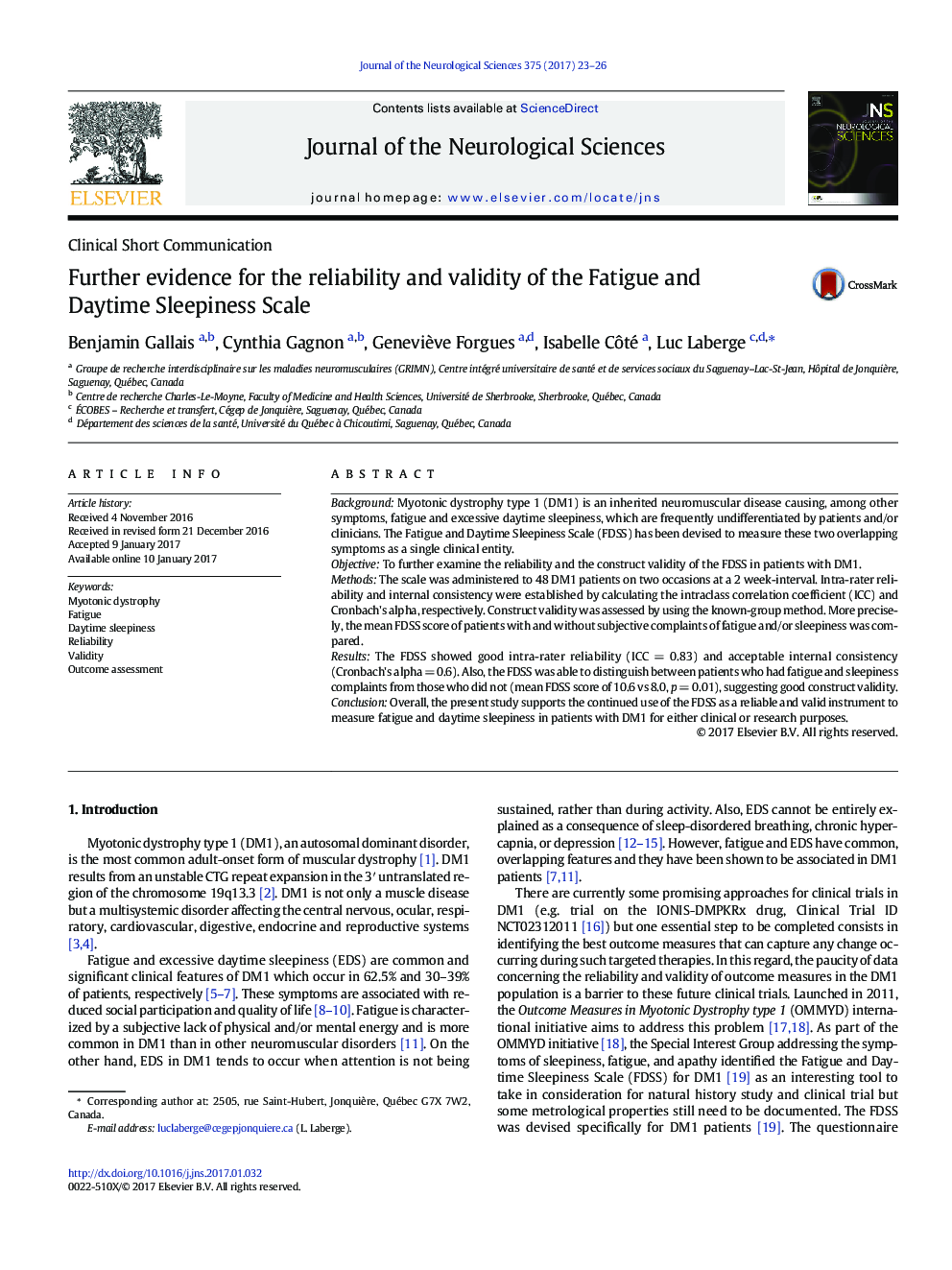| Article ID | Journal | Published Year | Pages | File Type |
|---|---|---|---|---|
| 5503233 | Journal of the Neurological Sciences | 2017 | 4 Pages |
â¢Results support the use of the FDSS in patients with myotonic dystrophy type 1.â¢The FDSS demonstrated good intra-rater reliability (ICC = 0.83).â¢The FDSS distinguishes DM1 patients with or without fatigue/sleepiness complaints.
BackgroundMyotonic dystrophy type 1 (DM1) is an inherited neuromuscular disease causing, among other symptoms, fatigue and excessive daytime sleepiness, which are frequently undifferentiated by patients and/or clinicians. The Fatigue and Daytime Sleepiness Scale (FDSS) has been devised to measure these two overlapping symptoms as a single clinical entity.ObjectiveTo further examine the reliability and the construct validity of the FDSS in patients with DM1.MethodsThe scale was administered to 48 DM1 patients on two occasions at a 2 week-interval. Intra-rater reliability and internal consistency were established by calculating the intraclass correlation coefficient (ICC) and Cronbach's alpha, respectively. Construct validity was assessed by using the known-group method. More precisely, the mean FDSS score of patients with and without subjective complaints of fatigue and/or sleepiness was compared.ResultsThe FDSS showed good intra-rater reliability (ICC = 0.83) and acceptable internal consistency (Cronbach's alpha = 0.6). Also, the FDSS was able to distinguish between patients who had fatigue and sleepiness complaints from those who did not (mean FDSS score of 10.6 vs 8.0, p = 0.01), suggesting good construct validity.ConclusionOverall, the present study supports the continued use of the FDSS as a reliable and valid instrument to measure fatigue and daytime sleepiness in patients with DM1 for either clinical or research purposes.
